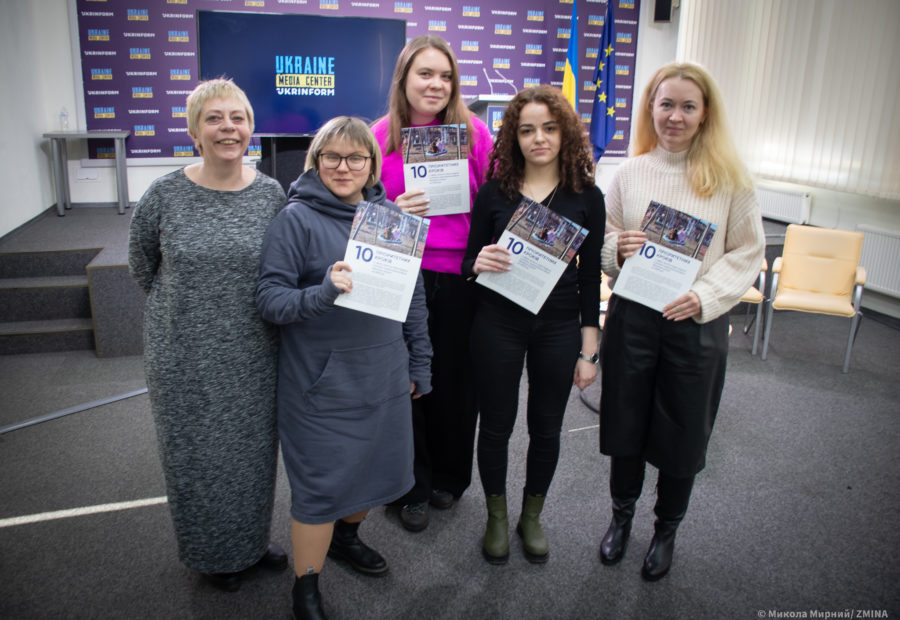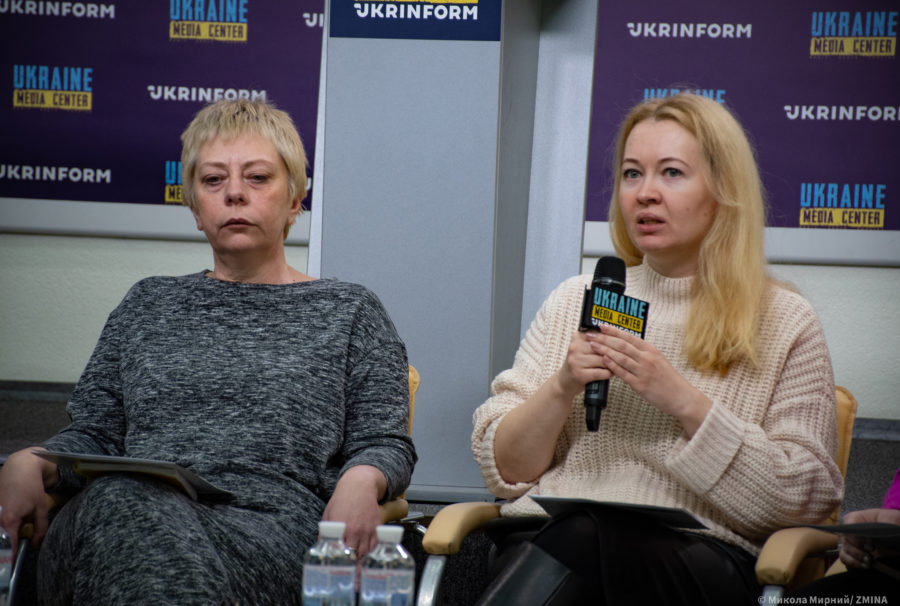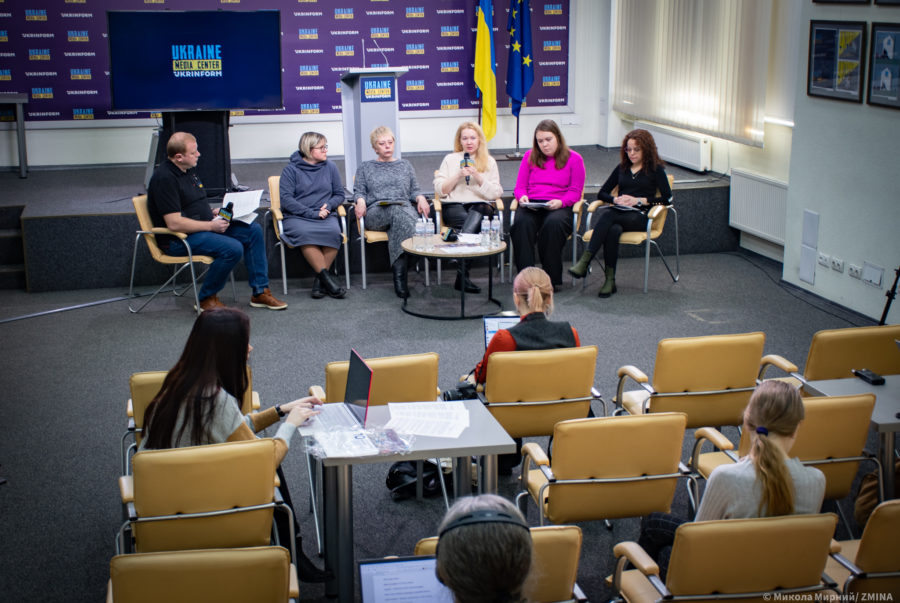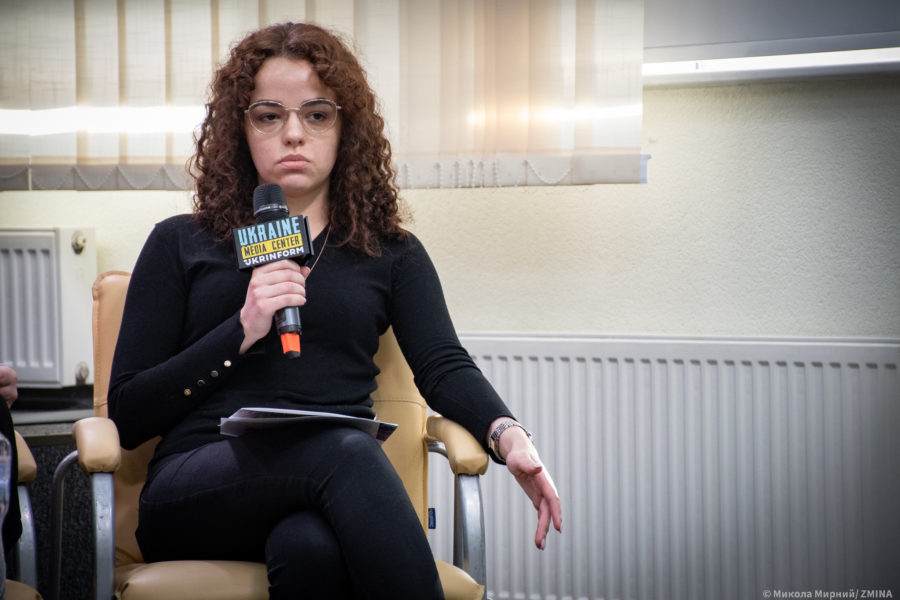10 priority steps in the conditions of war, which the state must take in 2023: recommendations of the human rights defenders
The Ukrainian authorities should ratify the Rome Statute, provide fair compensation for destroyed property, and implement an efficient population evacuation system in 2023. At a press conference in Kyiv on February 9, human rights activists made a relevant statement and presented a list of 10 priority steps in the field of human rights to be taken by the state this year.

As Alena Lunova, advocacy director at Human Rights Centre ZMINA, noted, the experts of the Coalition of organizations taking care of the protection of the rights of war victims, prepare such recommendations for the authorities not for the first time. But after the start of Russia’s large-scale war against Ukraine, many problems that had not been solved before became more acute.
“One of the most urgent issues is accountability, in particular the ratification of the Rome Statute. We should harmonize national and international criminal law to most effectively punish those who committed the most serious war crimes and crimes against humanity. It’s surprising, but the Criminal Code of Ukraine does not mention crimes against humanity at all, and war crimes are mainly concentrated only in Article 438 which does not detail separate elements of crimes,” Lunova said.
Also, in her opinion, it is important to enhance responsibility for collaborationism to prosecute those who really contributed to the occupation by their actions and to avoid liability for the fact of living in the territory of Ukraine occupied by the aggressor.
Anastasia Burau, advocacy lawyer at Charitable Foundation “Right to Defense”, said that the Ukrainian legislation still does not offer a single comprehensive definition of who can be considered war victims in the conditions of a long war.
Moreover, in her opinion, the state should create a new efficient mechanism for providing compensation to victims whose property was destroyed or damaged as a result of armed aggression.

“The procedure for providing monetary compensation previously created by the government, which was actively applied until February 24, currently does not meet the challenges of full-scale war and the scale of destruction. One of the important initiatives of last year is draft law No. 7198 but it needs to be revised,” Burau added.
The state should also simplify the procedure for issuing documents for Ukrainians living under the occupation. Violeta Artemchuk, coordinator at NGO “Donbas SOS”, says that many people remain without legal documents and the opportunity to exercise their rights.
“Thousands of families who have children born under the occupation are forced to refuse Ukrainian birth certificates because it is difficult or impossible to get them due to court procedure for obtaining. Such a procedure should be performed administratively and out of court. Also, Ukraine should recognize the educational qualifications obtained under the occupation as this will allow Ukrainians to get a job in the government-controlled territory and replenish various branches of the country’s economy with specialists who are currently in high demand,” Artemchuk believes.

Moreover, the legislation on persons gone missing under special circumstances is still not working although, according to international organizations’ data, there are more than 15,000 missing persons. Because of this, the state does not have a full-fledged system of social protection and support for the relatives of those missing. Anastasia Kalinina, lawyer at NGO “Crimea SOS”, notes: the state should also launch comprehensive healthcare, social, and psychological support for civilians, military personnel, and their families after capture or imprisonment by the occupiers.
“We still do not have reliable data on the number of civilian hostages but it is crucial for the Unified Register of Prisoners and Captives to become operational to systematize the available information,” Kalinina adds.
In the opinion of Yulia Matviychuk, advocacy manager at Charity Foundation “East-SOS”, the state still needs to change its approach to providing accommodation assistance to internally displaced persons so that there are no discriminatory inspections of IDPs. It is also worth changing the procedure for evacuating the civilian population from areas of hostilities.

Efficient evacuation system, Matviychuk says, lacks systematic coordination between state authorities on the ground, national and international non-governmental organizations that provide assistance in evacuation.
The full list of recommendations for the authorities is available in Ukrainian and English.
Watch the video from the press conference.
The recommendations were prepared by the Coalition of NGOs taking care of the protection of the rights of victims of Russia’s armed aggression against Ukraine. Its members: Human Rights Centre ZMINA, NGO “Donbas SOS”, NGO “Crimea SOS”, Charitable Foundation “Right to Defense”, Charity Foundation “East-SOS”, NGO “Civil holding “GROUP OF INFLUENCE”, Charity Foundation “Stabilization Support Services”, Crimean Human Rights Group.
Photo credit: Mykola Myrnyi / ZMINA
If you have found a spelling error, please, notify us by selecting that text and pressing Ctrl+Enter.















